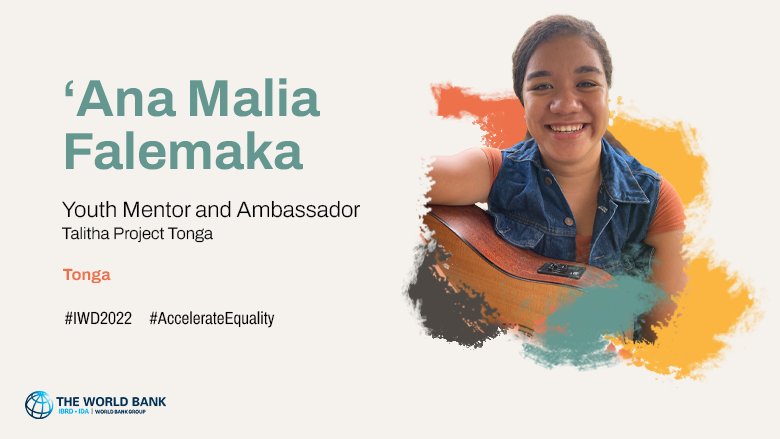It started four years ago when I participated in an empowerment camp with the Talitha Project, an NGO that focuses on empowering young women. I learnt about gender inequality, gender-based violence and climate change – issues that women and girls are facing in Tonga and around the world.
I began advocating for climate justice after my country experienced Cyclone Gita in 2018. It destroyed a lot of homes in my village and my school. I had to study in a classroom with half a roof over my head. It opened my eyes to the climate crisis. From that point onwards I was determined to create awareness and to play my role in the fight.
I was brought up with the mindset that men are always leaders at home, in our community, at church, and even in our country. For girls, we were told that our role was in the home – the cooking, the washing and the household chores. At the same time, our brothers go to the bush, explore the village or play rugby. These experiences shaped my determination to change this mindset, because it’s not just men who should be in leadership roles. I've always had this crazy dream of one day being the first female Prime Minister for Tonga. We've never had a female Prime Minister.
In three words, that’s a bit hard! Determined, kind and self-motivated.
Provide more platforms for youth to be able to express their opinions. It's very uncommon for our elders to listen to us - it's more likely that we are the ones listening to our elders. Governments can provide more spaces for youth. Tonga has started having Youth Parliaments, but it only happens once a year. Respect is a big thing in Tonga. It would be great to have more spaces where we could express our opinions more freely to elders and our governments all year round.
What has been the highlight of your work so far?
Being able to see the smiles on young girls' faces when we conduct our programs. I work with the Talitha Project, and we run different types of programs for girls, such as training, camps and music festivals. It’s wonderful to see girls starting to believe in themselves and know that they could be someone someday.
Another highlight is speaking at forums. When you speak from the heart you have an impact on the audience, and I’m getting great feedback on my speaking skills. Once, I got a standing ovation, which is not common for a young person like me. Being able to help advocate for change is a highlight too.
What do you think needs to be done to ensure more women end up in leadership positions in Tonga?
We should unify women in Tonga. According to the statistics from our last election, most voters were women and the majority of their votes went to male candidates rather than female candidates. We need unity and to change these mindsets. Women can take on these roles and become leaders. We also need to enact a law that guarantees a few seats in Parliament for female representatives.
Do you have any advice for young Pacific women?
It's important that we take a good look at our surroundings so that we can see the issues that we are facing. And don’t be afraid. If you want to see a change in the environment, and in the world that we live in, you have to be that change.
This work is not easy. It’s hard to balance my advocacy work with my studies, my jobs and my role as a daughter. Sometimes it gets too much. But what keeps me going is my sisters and all the other young women in Tonga that are counting on me to represent their wishes in the work that I do. I know that I’m not just representing myself but everybody around me. I keep in my heart that I’m not only doing this for myself, but for future generations and future Tongan girls so they can live in a safer and better world.
**The views expressed in this interview do not necessarily represent the views of the World Bank Group.

